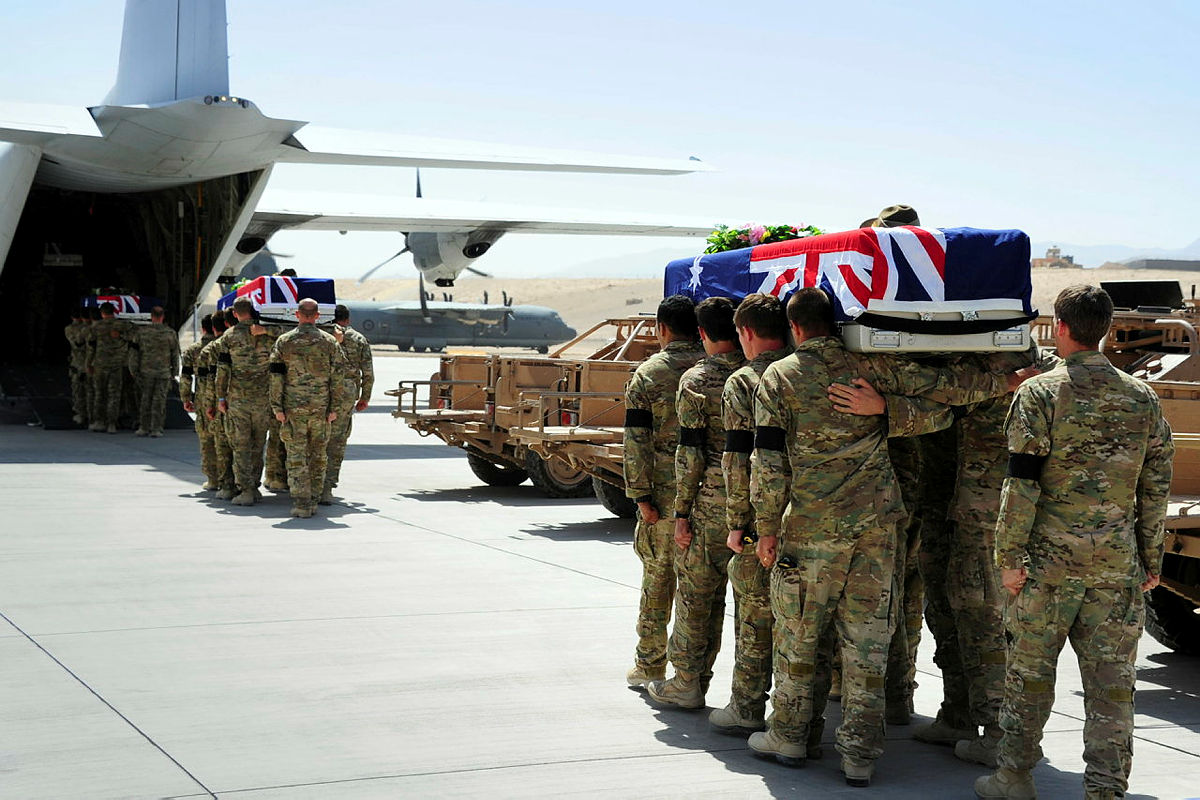Australian soldiers’ killer belongs behind bars

Eight years ago almost to the day, Australian soldiers Rick Milosevic, James Martin and Robert Poate were on deployment in Afghanistan at Patrol Base Wahab in Uruzgan. After an exhausting day of patrolling in over 50-degree heat, they returned inside the wire of the base they shared with their Afghan National Army allies.
Hekmatullah, an Afghan sergeant, moved about the bands of off-duty Australian soldiers playing cards to unwind after a trying day. He socialised with Aussies in the gym. He entered the Australian administration area, reconnoitring the area and studying force-protection measures like the piquet on duty. He left, because it was his turn to be on guard duty.
When Hekmatullah returned with his M-16 and a full ammunition clip, he closed in within five metres of the diggers playing cards and emptied his entire clip on our soldiers, killing three and wounding more. He escaped the base.
Hekmatullah later said he had decided to kill the Australians because a fellow Afghan army soldier showed him Taliban propaganda on his phone claiming to depict American troops burning the Koran. Another Afghan soldier saved many Aussies by refusing to lend Hekmatullah a machine gun, which would have enabled him to kill many more.
This ‘green on blue’ attack was part of an escalating campaign of Taliban insiders in the Afghan army (greens) killing international forces (blues, like our soldiers in this case). It was one of the darkest days of the Australian commitment to the war in Afghanistan. One hundred and forty coalition troops, including seven Australians, were killed in 85 such insider attacks.
Initially arrested by Pakistan, Hekmatullah was passed to Afghan authorities and sentenced to death, but he never received the death penalty. Last week, we learned that Hekmatullah, who has shown no remorse in prison and said he would do it again, was to be released by the Afghan government with the approval of the US as part of a broader peace deal.
The families of the three men killed by Hekmatullah have expressed their grief at news of his release. Prime Minister Scott Morrison said that Foreign Minister Marise Payne and Defence Minister Linda Reynolds raised Australia’s concern with their US counterparts at AUSMIN talks. Morrison has written to both US President Donald Trump and Afghan President Ashraf Ghani about Hekmatullah, and said, ‘Our position is that he should never be released’.
Labor leader Anthony Albanese and other opposition frontbenchers have called for the government to avoid a complete failure of diplomacy—which Hekmatullah’s release would absolutely be. Labor continues to call on all parties to reconsider Hekmatullah’s inclusion in this deal, in the interests of justice for the three victims and their families.
These events disturb me and, while I am not an expert on Afghanistan, in 2003 I provided security in Kandahar, the spiritual home of the Taliban, to support the build-up of Afghan democratic institutions. Working with the Afghan Loya Jirga team on behalf of the United Nations mission, I saw a democratic process elect elders to go to Kabul to hammer out a constitution. This taught me a few things, one of which is that the Taliban, which are predominantly Pashtuns, observe a tribal system of justice called Pashtunwali.
Presumably, Hekmatullah is a Pashtun, in which case he must face justice under the principles of Pashtunwali. Of course, the Taliban have a history of using and abusing Pashtunwali as they see fit. But it’s worth pointing out that behaviour such as that displayed by Hekmatullah goes against the traditional institution of Pashtunwali.
Our three Australian soldiers, who were just playing cards and had caused no harm to Hekmatullah or others outside the base, were guests in Afghanistan invited to intervene not only according to international law but under core principles of Pashtun culture.
While the Taliban are majority Pashtun, so are their victims. Pashtun people have been the most devastated by almost 20 years of war. Hekmatullah’s murdering of three Aussie soldiers cannot be considered turrah (bravery) in Pashtun culture when melmastia (hospitality) and nanawati (protection) are even granted to your staunch enemy upon request.
The Afghan government must exclude the release of Hekmatullah on the basis of his actions. He is not just an ordinary Afghan who has wrongfully been captured and imprisoned. He is one of 400 hardened fighters and he has murdered Australian soldiers, not in battle but in a cold-blooded insider attack, and he is guilty beyond doubt, as courts have proven him to be.
I have made a commitment to Private Robert Poate’s father that I will fight for his son and his mates who never came home. The Afghan and Pakistani governments are not powerless to stop this. Neither are the Australian and US governments. All should do the right thing.
The prime minister needs to stop an unrepentant killer of Aussie diggers from walking free.